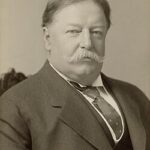The Trust-Busting Campaign Decision
President William Howard Taft launched an unprecedented trust-busting campaign in 1909. His administration filed 90 antitrust suits in just four years. This exceeded Theodore Roosevelt’s eight-year total of 44 suits. Taft targeted the most powerful monopolies strangling American competition. 📊
Major Trust-Busting Victories
Taft’s most significant victory came against Standard Oil Company in 1911. The Supreme Court ordered the oil giant’s dissolution into 34 separate companies. The American Tobacco Company faced similar dismantlement that same year. These landmark cases established crucial legal precedents for future antitrust enforcement. ⚖️
Legal Strategy and Implementation
Taft appointed aggressive trust-busters to key positions. Attorney General George Wickersham led the charge against corporate monopolies. The administration used the Sherman Antitrust Act more effectively than previous presidents. Taft’s legal background helped craft stronger cases against monopolistic practices. 💰 His systematic approach targeted industries controlling essential goods and services.
Impact:
Economic Impact on Competition
Taft’s trust-busting campaign restored competitive markets across multiple industries. Standard Oil’s breakup created independent companies like Exxon and Chevron. Consumer prices dropped as competition increased in previously monopolized sectors. Small businesses gained opportunities to compete against former monopolistic giants. 📈
Long-Term Market Effects
The campaign established lasting precedents for antitrust enforcement. Future administrations used Taft’s legal victories as foundations for regulation. The Supreme Court’s “rule of reason” emerged from these landmark cases. This principle distinguished between reasonable business practices and harmful monopolistic behavior. 🌍
Political and Social Consequences
Taft’s aggressive stance surprised business leaders who expected lenient treatment. His trust-busting campaign actually exceeded Roosevelt’s progressive reputation. Workers benefited from increased job opportunities in competitive markets. Consumers enjoyed lower prices and better products through restored competition. ⚠️ However, some Republican donors felt betrayed by Taft’s aggressive prosecution of big business interests.
